presentations
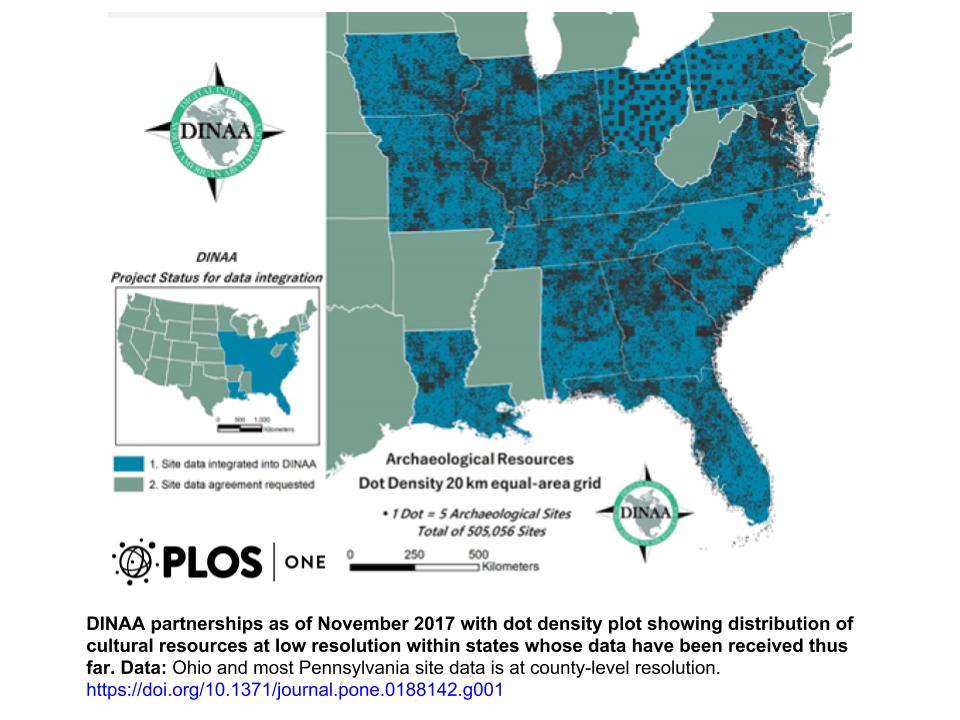
Principles of Open Government Archaeology: Lessons from the Digital Index of North American Archaeology (DINAA)
Mon, 09 Apr 2018 by Joshua J. Wells / presentationsAmerican archaeology is conducted under cultural resources protection laws, but how does archaeology meet the challenge of openness? The past decade saw development of the “open government” digital information paradigm for public availability of information that underpins the functions of governance. Open government data provide a base …
Read more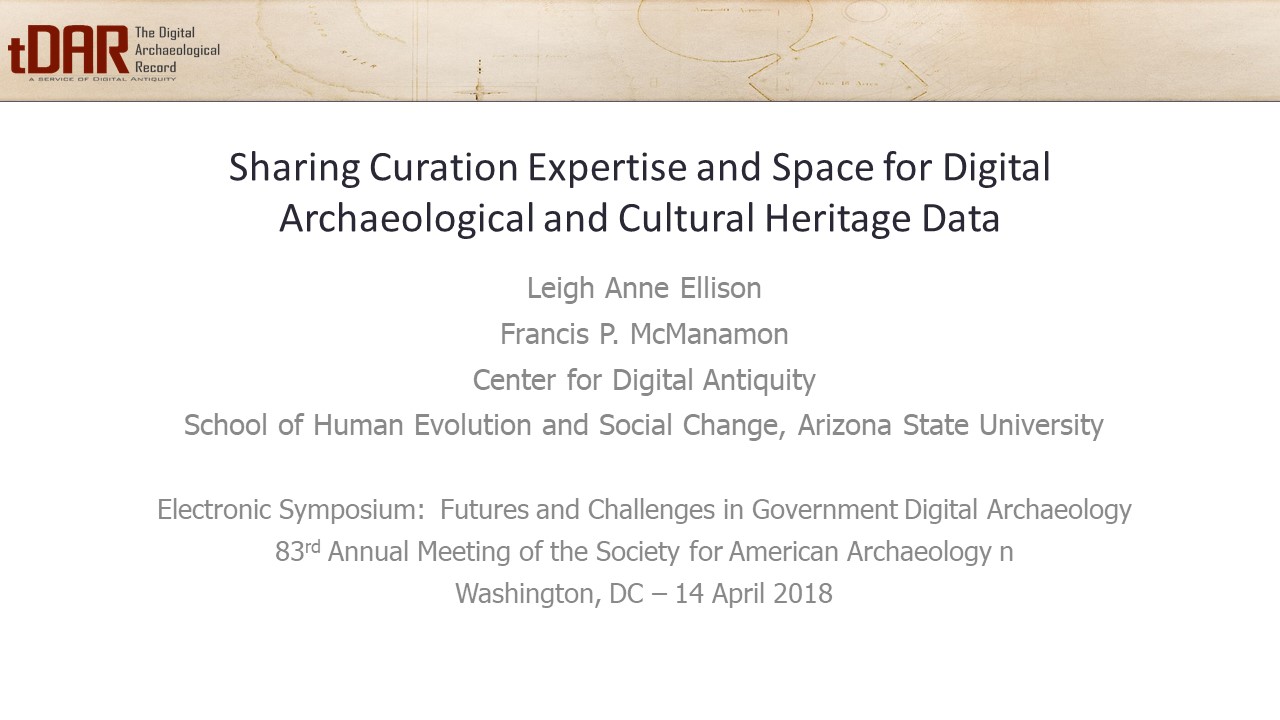
Sharing Curation Expertise and Space for Digital Archaeological and Cultural Heritage Data
Sat, 07 Apr 2018 by Leigh Anne Ellison / PresentationsLeigh Anne Ellison Francis Pierce-McManamon
Abstract
Archaeologists are busy all the time. Often stretching to meet a variety of professional obligations. CRM and government agency archaeologists are among the most stretched given the different directions that pull upon their professional lives. Scholarly pursuits; administrative, bureaucratic, regulatory, and public outreach responsibilities …
Read more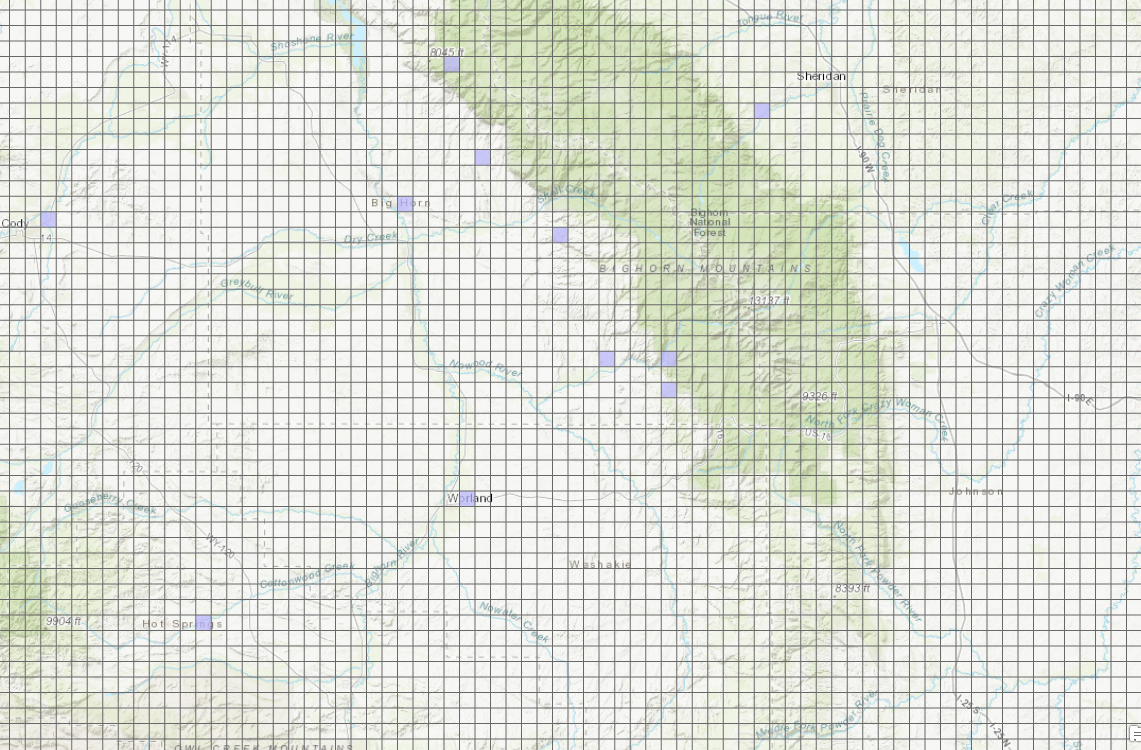
Ethics and Best Practices for Mapping Archaeological Sites
Fri, 06 Apr 2018 by Cecilia Smith / presentationsCecilia Smith
Texas A&M University
Abstract
Principle 6 of the Society of American Archaeology’s Principles of Archaeological Ethics emphasizes archaeologists’ responsibility to publically report archaeological investigations with the stipulation that “An interest in preserving and protecting in situ archaeological sites must be taken in to account when publishing …
Read more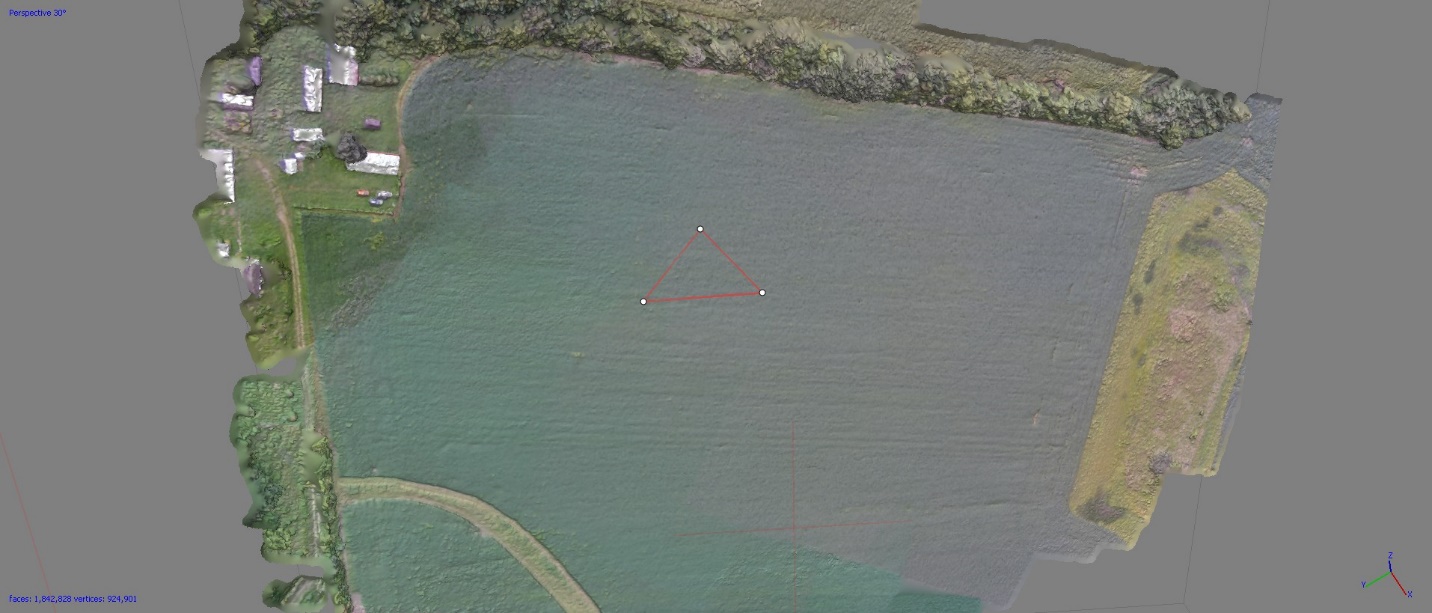
10 years, 3 Supervisors, 7 assistants and 30 students. How the Iowa Office of the State Archaeologist managed, manages and plans for the future of archaeological data
Thu, 05 Apr 2018 by Mary De La Garza / presentationsSustainable accessible data storage is as important to archaeologists as tractors are to farmers. In 2001, the University of Iowa Office of the State Archaeologist (OSA) was archiving 20GB of data on a 100GB server and recognized that the addition of a staff member to focus …
Read more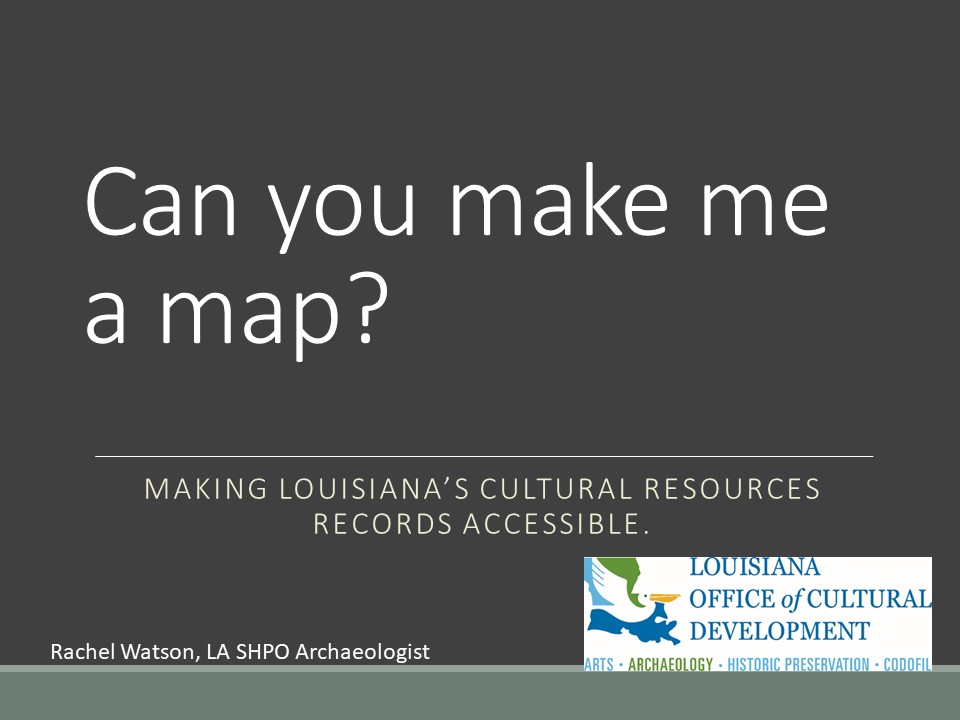
Can you make me a map? Making Louisiana’s cultural resources records accessible
Tue, 03 Apr 2018 by Rachel Watson / presentationsIn October of 2004 the Louisiana Department of Culture, Recreation and Tourism, Office of Cultural Development (OCD) and the LA Department of Transportation and Development (DOTD) signed an interagency agreement to develop a comprehensive statewide cultural resources GIS system, the Louisiana Cultural Resources Map. The State Historic Preservation …
Read more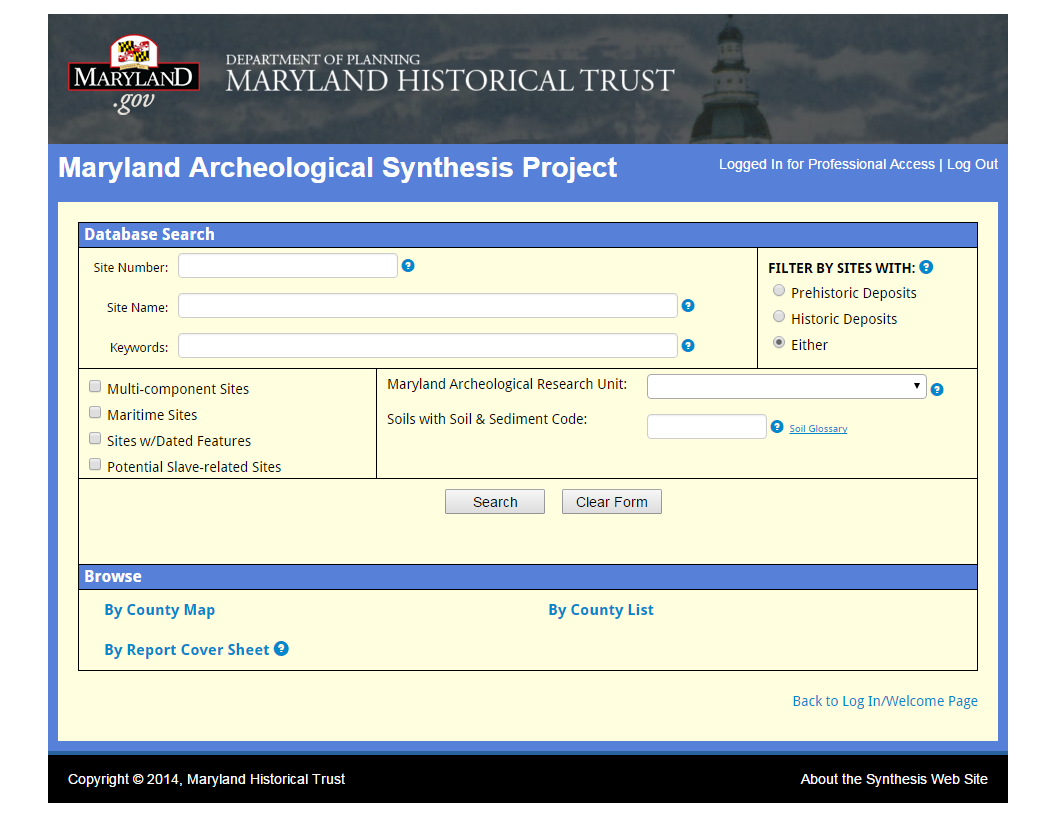
The Maryland Archaeological Synthesis Project: One State’s Solution to Archaeology’s Crushing Gray Literature Problem
Fri, 16 Mar 2018 by Matthew McKnight / PresentationsMaryland Archaeological Synthesis Project
Introduction
Since passage of the National Historic Preservation Act fifty-three years ago a growing body of valuable data has been generated by state agencies, CRM professionals, and preservation officers. Unfortunately, this data is usually trapped in an archaic paper-based format, restricted geographically to a …
Read more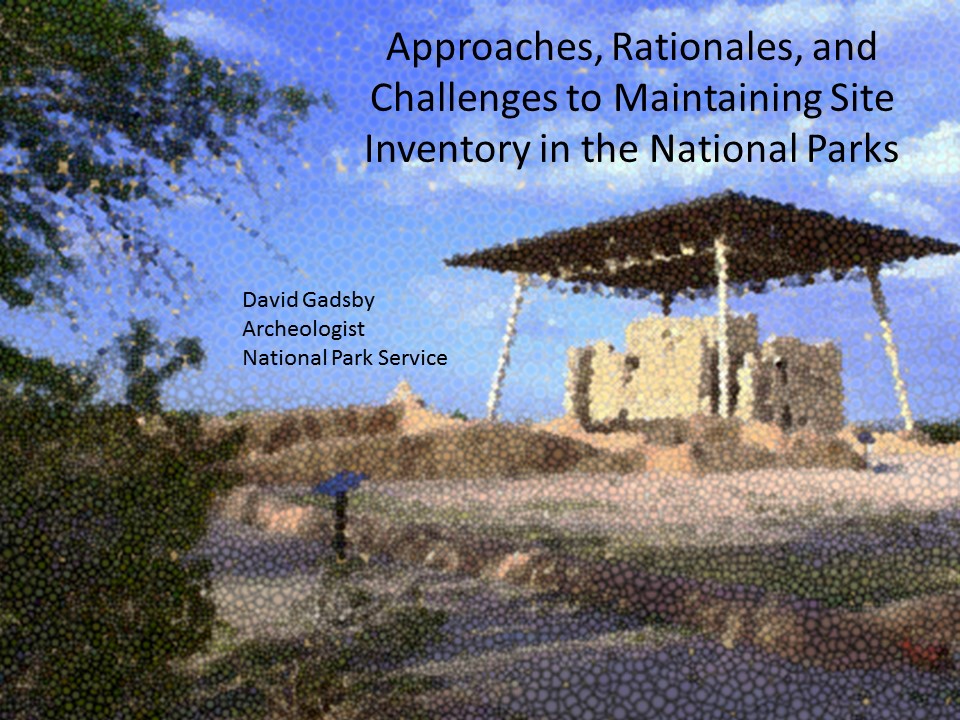
Approaches, Rationales, and Challenges to Maintaining Site Inventory in the National Parks
Wed, 14 Mar 2018 by David Gadsby / presentationsFor over a century, the National Park Service (NPS) has worked to preserve natural and cultural resources in more than four hundred park units for future generations. In addition, the National Historic Preservation Act (NHPA) requires all federal agencies to maintain inventories of their historic properties. For decades …
Read more